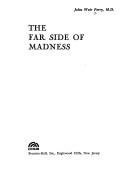| Listing 1 - 3 of 3 |
Sort by
|
Book
Year: 2017 Publisher: Washington, D.C. : The World Bank,
Abstract | Keywords | Export | Availability | Bookmark
 Loading...
Loading...Choose an application
- Reference Manager
- EndNote
- RefWorks (Direct export to RefWorks)
This paper investigates the potential of information technology to improve public service delivery and empower citizens. The investigation uses two randomized natural experiments in the renewal of national identification cards by the Bolivian Police. The first experiment arises from the random assignment of police officers and applicants to a manual or digital renewal process, which is identical in all other aspects. The second experiment arises from technical failures in the digital renewal process, which allow police officers to change from the digital to the manual renewal process randomly across renewal days. The efficiency of public service delivery is measured in renewal success rates (which average to a strikingly low rate of 72 percent in the sample) and the time it takes to renew an identification card. The findings show that applicants who were randomly assigned to the digital renewal process were on average 12 percentage points more likely to complete it, compared with those who were randomly assigned to the manual process. Further, successful applicants who were randomly assigned to the digital process took on average 31 percent less time to complete the process, compared with those who were randomly assigned to the manual process. The investigation finds that information technology significantly lowers barriers to accessing national identification cards, and promotes more equitable provision across the population. The findings suggest that information technology might achieve these goals by introducing efficiencies (such as reducing administrative shortcomings and transaction costs) and limiting the exercise of discretion by police officers in the renewal process.
Digital Id --- Id --- Identification Cards --- Information Technology --- National Id --- Renewal Process

ISBN: 0133030245 Year: 1974 Publisher: Englewood Cliffs, New Jersey Prentice Hall, Inc.
Abstract | Keywords | Export | Availability | Bookmark
 Loading...
Loading...Choose an application
- Reference Manager
- EndNote
- RefWorks (Direct export to RefWorks)
madness --- reorganization of the self --- Messianism --- Mysticism --- the renewal process --- love and power --- philosophy --- method of therapy --- renewal
Book
ISBN: 3039285173 3039285165 Year: 2020 Publisher: MDPI - Multidisciplinary Digital Publishing Institute
Abstract | Keywords | Export | Availability | Bookmark
 Loading...
Loading...Choose an application
- Reference Manager
- EndNote
- RefWorks (Direct export to RefWorks)
Developing techniques for assessing various risks and calculating probabilities of ruin and survival are exciting topics for mathematically-inclined academics. For practicing actuaries and financial engineers, the resulting insights have provided enormous opportunities but also created serious challenges to overcome, thus facilitating closer cooperation between industries and academic institutions. In this book, several renown researchers with extensive interdisciplinary research experiences share their thoughts that, in one way or another, contribute to the betterment of practice and theory of decision making under uncertainty. Behavioral, cultural, mathematical, and statistical aspects of risk assessment and modelling have been explored, and have been often illustrated using real and simulated data. Topics range from financial and insurance risks to security-type risks, from one-dimensional to multi- and even infinite-dimensional risks.
insurance --- n/a --- multiplicative background risk model --- renewal process --- dual risk model --- collective risk model --- risk measure --- aggregate risk --- Laplace transform --- transfer function --- risk management --- risk theory --- maximal tail dependence --- constant interest rate --- partial integro-differential equation --- reinsurance --- financial time series --- spatial risk measures and corresponding axiomatic approach --- central limit theorem --- integral equation --- Markovian arrival process --- systematic risk --- information processing --- discounted aggregate claims --- surplus process --- weighted cuts --- rate of spatial diversification --- national culture --- operational risk --- covariance --- cumulative Parisian ruin --- spatial dependence --- background risk --- survival analysis --- Monte Carlo --- aggregate discounted claims --- stochastic orders --- order statistic --- max-stable random fields --- copulas --- hazard model --- multivariate gamma distribution --- copula --- advanced measurement approach --- concomitant --- archimedean copulas --- rating migrations --- ruin probability --- clustering --- confidence interval --- individual risk model --- numerical approximation --- value-at-risk
| Listing 1 - 3 of 3 |
Sort by
|

 Search
Search Feedback
Feedback About UniCat
About UniCat  Help
Help News
News